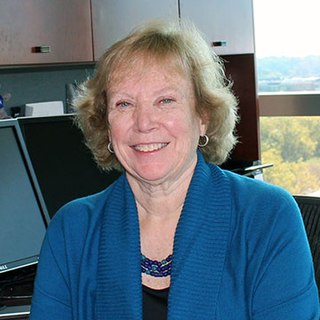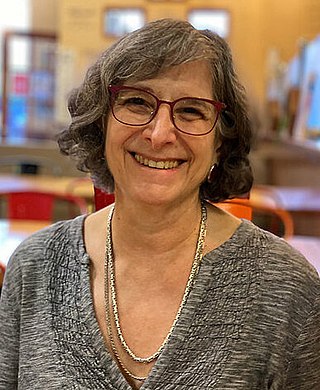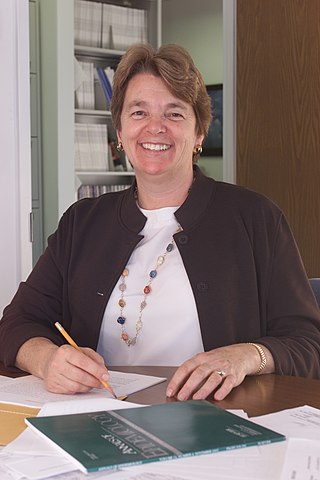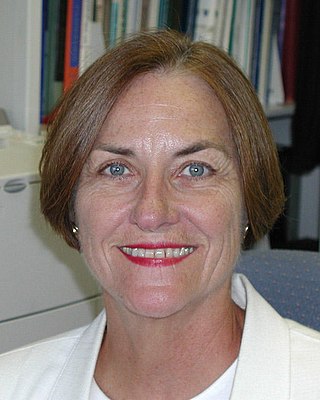
Folate, also known as vitamin B9 and folacin, is one of the B vitamins. Manufactured folic acid, which is converted into folate by the body, is used as a dietary supplement and in food fortification as it is more stable during processing and storage. Folate is required for the body to make DNA and RNA and metabolise amino acids necessary for cell division. As humans cannot make folate, it is required in the diet, making it an essential nutrient. It occurs naturally in many foods. The recommended adult daily intake of folate in the U.S. is 400 micrograms from foods or dietary supplements.

Folate deficiency, also known as vitamin B9 deficiency, is a low level of folate and derivatives in the body. Signs of folate deficiency are often subtle. A low number of red blood cells (anemia) is a late finding in folate deficiency and folate deficiency anemia is the term given for this medical condition. It is characterized by the appearance of large-sized, abnormal red blood cells (megaloblasts), which form when there are inadequate stores of folic acid within the body.

Vitamin B12 deficiency, also known as cobalamin deficiency, is the medical condition in which the blood and tissue have a lower than normal level of vitamin B12. Symptoms can vary from none to severe. Mild deficiency may have few or absent symptoms. In moderate deficiency, feeling tired, anemia, soreness of the tongue, mouth ulcers, breathlessness, feeling faint, rapid heartbeat, low blood pressure, pallor, hair loss, decreased ability to think and severe joint pain and the beginning of neurological symptoms, including abnormal sensations such as pins and needles, numbness and tinnitus may occur. Severe deficiency may include symptoms of reduced heart function as well as more severe neurological symptoms, including changes in reflexes, poor muscle function, memory problems, blurred vision, irritability, ataxia, decreased smell and taste, decreased level of consciousness, depression, anxiety, guilt and psychosis. If left untreated, some of these changes can become permanent. Temporary infertility reversible with treatment, may occur. In exclusively breastfed infants of vegan mothers, undetected and untreated deficiency can lead to poor growth, poor development, and difficulties with movement.
Jamie Sue Stang is an American dietitian and nutritionist. She is an associate professor in the Division of Epidemiology and Community Health at the University of Minnesota School of Public Health.

Louise A. Brinton is an American epidemiologist. She was a senior investigator, Chief of the Hormonal and Reproductive Epidemiology Branch, and the first Scientific Advisor for International Activities of the National Cancer Institute Division of Cancer Epidemiology and Genetics.

Ruth A. Kleinerman is an American epidemiologist specialized in retinoblastoma. Kleinerman worked at the National Cancer Institute (NCI) from 1979 to 2019 where she served as a staff scientist and deputy chief of the Radiation Epidemiology Branch.

Rachael Zoe Stolzenberg-Solomon is an American epidemiologist and dietitian. She is a senior investigator and head of the metabolic epidemiology branch at the National Cancer Institute.

Laura Elizabeth Beane Freeman is an American environmental epidemiologist who is a senior investigator in the occupational and environmental epidemiology branch at the National Cancer Institute.

Debra Toby Silverman is an American biostatistician and epidemiologist specialized in bladder cancer epidemiology and the carcinogenicity of diesel exhaust. Silverman is the chief of the occupational and environmental epidemiology branch at the National Cancer Institute.

Abby Gwen Ershow is an American nutritionist specialized in iodine nutrition, lipid metabolism, atherogenesis, and cardiovascular nutrition. She was a health science administrator at the National Heart, Lung, and Blood Institute from 1982 to 1989 and a senior nutrition scientist at the National Institutes of Health Office of Dietary Supplements from 2014 to 2021.

Patricia A. Hartge is an American cancer epidemiologist who conducted genome-wide association studies on ovarian cancer, non-Hodgkin lymphoma, melanoma, and other malignancies. From 1996 to 2013, Hartge was deputy director of the epidemiology and biostatistics program in the division of cancer epidemiology and genetics at the National Cancer Institute.

Amanda Black is a Northern Irish epidemiologist who is the associate director of biological resources in the National Cancer Institute's division of cancer epidemiology and genetics.

Hannah P. Yang is an American cancer epidemiologist who is a staff scientist and associate director of scientific operations in the National Cancer Institute's division of cancer epidemiology and genetics.

Mia M. Gaudet is an American molecular epidemiologist pectized in cancer prevention research and managing cohort studies. She is a senior scientist in the division of cancer epidemiology and genetics at the National Cancer Institute.

Megan A. Clarke is an American cancer epidemiologist who researches anogenital and endometrial cancers. She is a Stadtman investigator in the clinical genetics branch at the National Cancer Institute.

Julia C. Gage is an American cancer epidemiologist who researches cervical screening and the human papillomavirus infection. She is a staff scientist in the clinical genetics branch at the National Cancer Institute.

Susan Shaw Devesa is an American cancer epidemiologist who conducts descriptive research of the patterns of cancer in the United States. She was a section chief of descriptive studies at the National Cancer Institute.
Regina Gale Ziegler is an American biochemist and nutritional epidemiologist who researched dietary, nutritional, anthropometric, and hormonal determinants of cancer risk. She was a senior investigator in the National Cancer Institute's epidemiology and biostatistics program.
Wen-Yi Huang is a cancer epidemiologist who primarily researches colorectal and prostate tumors. She is a staff scientist in the metabolic epidemiology branch at the National Cancer Institute.
Rashmi Sinha is a nutritional and cancer epidemiologist who researches diets, cancer risk, and the microbiome. She is a senior investigator in the metabolic epidemiology branch of the National Cancer Institute.
















